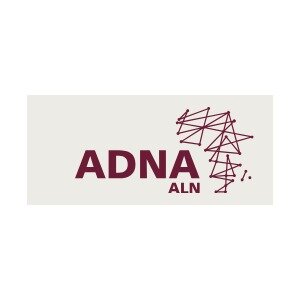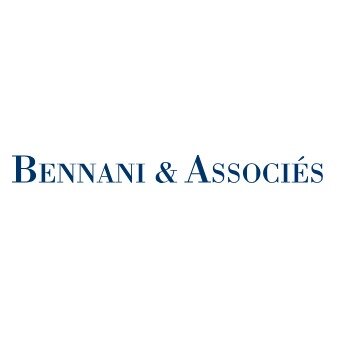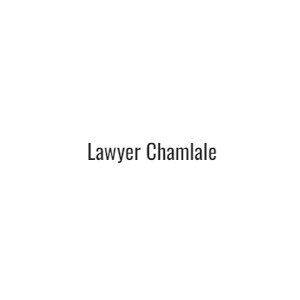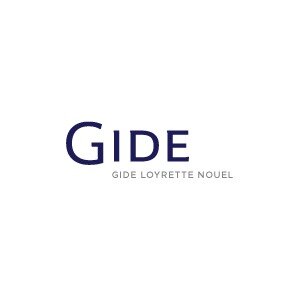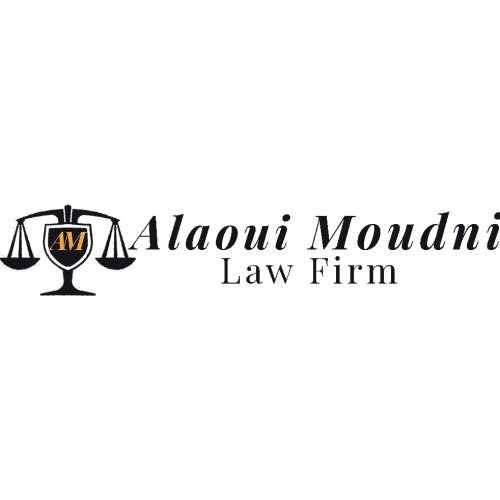Best Project Finance Lawyers in Casablanca
Share your needs with us, get contacted by law firms.
Free. Takes 2 min.
List of the best lawyers in Casablanca, Morocco
About Project Finance Law in Casablanca, Morocco
Project finance is a specialized area of law and finance that involves the financing of large infrastructure or industrial projects based on the projected cash flows from the project itself, rather than the balance sheets of the project sponsors. In Casablanca, which is a leading economic hub in Morocco and North Africa, project finance plays a pivotal role in funding initiatives such as energy plants, transportation infrastructure, real estate developments, and public-private partnerships. The legal structuring of these projects is complex and typically involves multiple stakeholders, international lenders, government bodies, and private sector participants.
Why You May Need a Lawyer
Engaging a lawyer experienced in project finance is vital for navigating the numerous legal and regulatory challenges that arise during a project’s lifecycle. Common situations where legal help is essential include:
- Drafting and negotiating complex finance documents such as loan agreements, security documents, and inter-creditor agreements
- Structuring public-private partnerships (PPPs) and understanding government concession frameworks
- Conducting due diligence on project viability and compliance with local laws
- Advising on risk allocation between parties, including lenders, sponsors, contractors, and off-takers
- Assisting with regulatory approvals or permits from Moroccan authorities
- Resolving disputes, defaults, or changes in project terms
- Dealing with cross-border elements of financing involving foreign investors or multinational institutions
Local Laws Overview
Project finance transactions in Casablanca are subject to Moroccan law, which incorporates both civil (influenced by French legal traditions) and regulatory frameworks. Key aspects relevant to project finance include:
- Investment Code: Outlines incentives and regulatory requirements for foreign and domestic investors.
- Public-Private Partnership (PPP) Law: Provides the framework for collaboration between public authorities and private sector investors.
- Company Law: Governs the legal formation of Special Purpose Vehicles (SPVs) often created for project finance ventures.
- Securities Law: Regulates the creation and enforcement of security interests, such as pledges and mortgages, critical for risk mitigation in financed projects.
- Environmental Regulations: Requires compliance assessments and permits, especially for energy, transport, and industrial projects.
- Foreign Exchange Controls: Managed by the Moroccan Foreign Exchange Office, these regulations affect the repatriation of profits and foreign funding.
It is also important to note that certain sectors, such as renewable energy and infrastructure, may have their own specific legal and regulatory provisions.
Frequently Asked Questions
What is project finance, and how does it differ from traditional financing in Morocco?
Project finance refers to financing based on the project's future cash flows and assets, rather than the sponsors' creditworthiness. In Morocco, this structure is often used for large-scale infrastructure and industrial projects, allowing lenders to have recourse only to the project's assets and contracts.
Are foreign investors allowed to participate in project finance projects in Casablanca?
Yes, Morocco is open to foreign investment, especially in strategic sectors like energy, transport, and infrastructure. There are clear guidelines under the Investment Code, and while certain conditions and permits apply, many international lenders and investors are actively involved.
What is the typical structure of a project finance transaction in Morocco?
Typically, a Special Purpose Vehicle (SPV) is created to own and operate the project. Financing is then arranged through a mix of debt and equity from sponsors, banks, and sometimes international financial institutions. Project assets and cash flows serve as collateral for the financing.
What risks should I be aware of when considering project finance in Casablanca?
Key risks include construction delays, cost overruns, regulatory changes, currency fluctuations, environmental compliance, and revenue risks (such as demand or off-take uncertainties). Proper due diligence and risk allocation in contracts are crucial.
Which government bodies regulate project finance transactions?
Depending on the sector, regulatory bodies may include the Ministry of Economy and Finance, sector-specific ministries (such as Energy or Transport), and the Moroccan Foreign Exchange Office. PPP projects may also require approval from local or national authorities.
How are security interests created and enforced for project finance in Morocco?
Security interests such as mortgages, pledges over shares, and assignments of project contracts or revenues are typically used. Moroccan law requires certain formalities, like registration or notarization, to perfect and enforce these securities.
Can project finance contracts be governed by foreign law?
While Moroccan law often applies, especially for real estate or rights tied to local assets, it is sometimes possible for parties to choose foreign law (usually for financing documents). However, security interests over Moroccan assets must comply with Moroccan law.
Are there any tax incentives for project finance in Casablanca?
There are various tax incentives and exemptions available, especially for projects in priority sectors or regions. These tend to be project-specific and subject to negotiations with governmental authorities.
How long does it take to close a project finance deal in Morocco?
The timeline varies depending on project complexity, the regulatory environment, and the required approvals. Deals may take several months to a year or more from initial negotiations to financial close.
What legal challenges might I face during a project’s operation phase?
Challenges could include changes in law or regulation, disputes with contractors or off-takers, difficulties with debt servicing, and issues related to environmental compliance or permit renewals. An experienced lawyer can help navigate these issues proactively.
Additional Resources
If you are seeking further guidance or official information on project finance in Casablanca, consider consulting the following resources:
- Moroccan Ministry of Economy and Finance for investment and financing regulations
- Moroccan Agency for Investment and Export Development (AMDIE) for investor support and project facilitation
- Moroccan Foreign Exchange Office for currency and repatriation regulations
- Local chambers of commerce and industry associations for industry-specific information
- Professional legal associations and law firms specializing in project finance and commercial law
- IFC and African Development Bank for regional project finance guidelines and support
Next Steps
If you need legal assistance with a project finance matter in Casablanca, the following steps will help guide your approach:
- Clearly define your project objectives and gather key documents related to your proposed development or participation.
- Identify and contact a lawyer or law firm in Casablanca with expertise in project finance and the relevant sector.
- Schedule a consultation to discuss your project, legal requirements, and potential risks.
- Obtain an initial legal review or due diligence report to understand potential challenges and compliance issues.
- Work collaboratively with your legal team to structure the transaction, draft or review contracts, and secure necessary approvals.
- Continue to involve your lawyer throughout the project’s lifecycle to address operational, financial, and regulatory legal issues as they arise.
Taking these steps can help you safeguard your interests, minimize risks, and maximize the opportunities for your project in Casablanca’s dynamic economy.
Lawzana helps you find the best lawyers and law firms in Casablanca through a curated and pre-screened list of qualified legal professionals. Our platform offers rankings and detailed profiles of attorneys and law firms, allowing you to compare based on practice areas, including Project Finance, experience, and client feedback.
Each profile includes a description of the firm's areas of practice, client reviews, team members and partners, year of establishment, spoken languages, office locations, contact information, social media presence, and any published articles or resources. Most firms on our platform speak English and are experienced in both local and international legal matters.
Get a quote from top-rated law firms in Casablanca, Morocco — quickly, securely, and without unnecessary hassle.
Disclaimer:
The information provided on this page is for general informational purposes only and does not constitute legal advice. While we strive to ensure the accuracy and relevance of the content, legal information may change over time, and interpretations of the law can vary. You should always consult with a qualified legal professional for advice specific to your situation.
We disclaim all liability for actions taken or not taken based on the content of this page. If you believe any information is incorrect or outdated, please contact us, and we will review and update it where appropriate.




